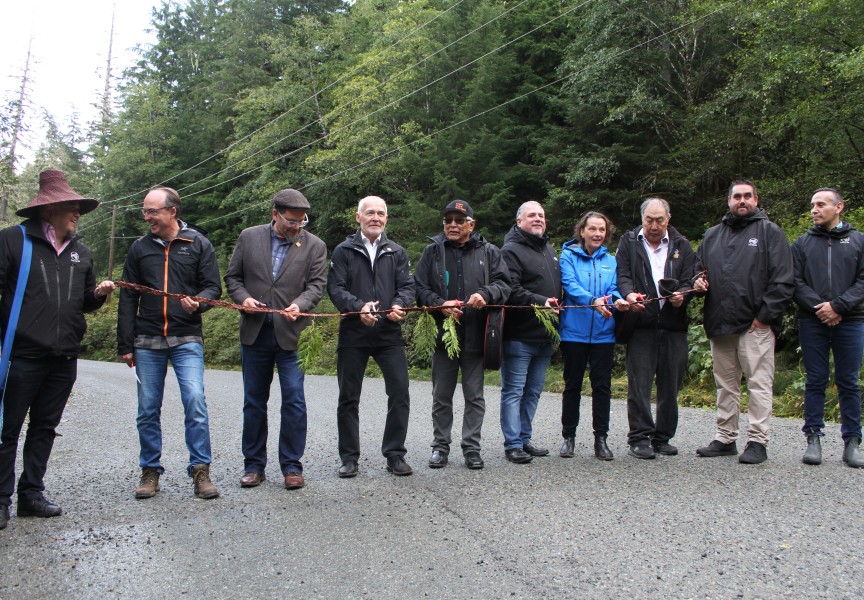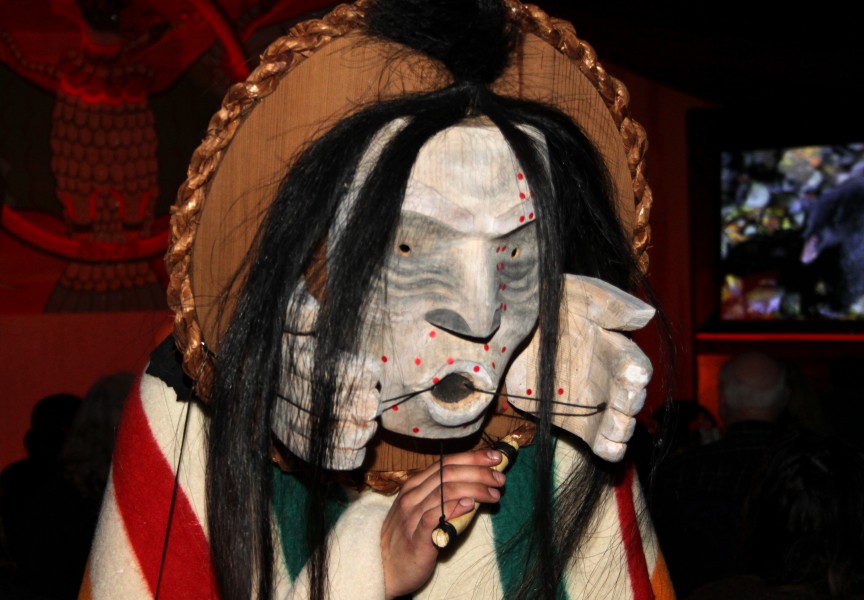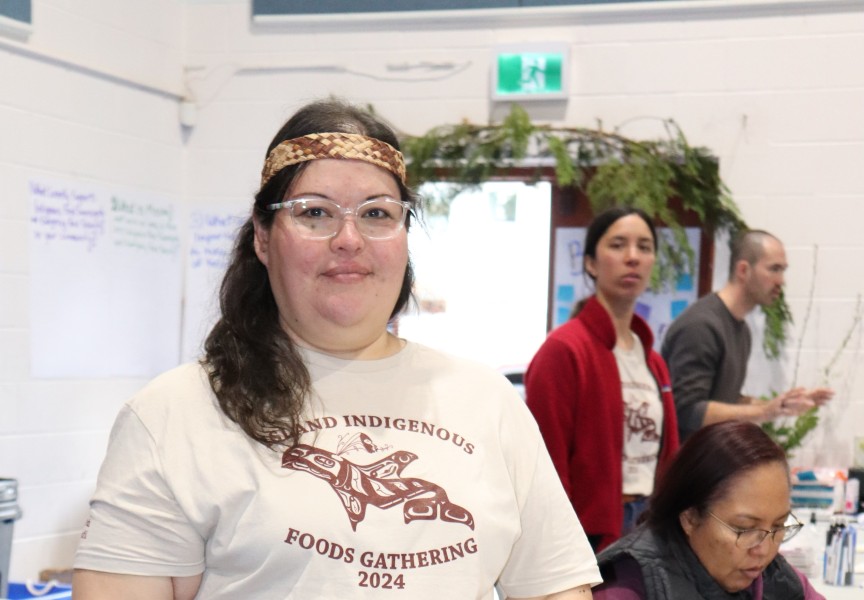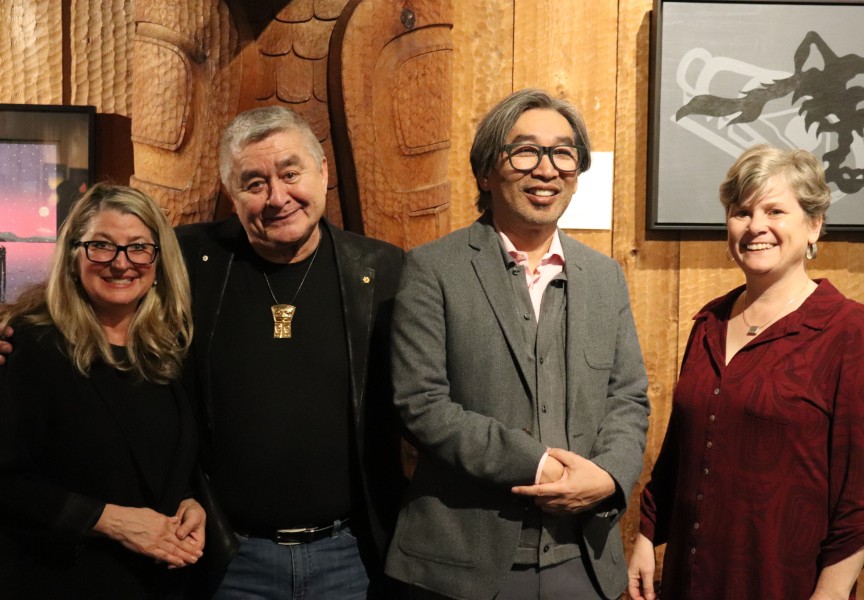After Jackelyn Seitcher graduated from high school in Ucluelet in 2002, she worked seasonally at the local fish plant for a couple of years. That was enough to convince her that she needed post-secondary education to build a career.
Seitcher is the daughter of Debbie Mundy and the late Jackie Williams.
“I grew up as a member of Ucluelet First Nation, but a few of us from my mom's dad's (Earl Mundy) side transferred back to Tseshaht,” she explained.
After deciding to return to school, Seitcher moved to Port Alberni and upgraded her high school credits through North Island College. She then undertook the Licensed Practical Nursing program at NIC, graduating in 2006. It didn't take long to find work.
“Just at the time I was graduating, I went to an event were I met with (former NTC Nursing manager) Jeanette Watts and (current manager) Ina Seitcher, who is my mother-in-law. They were talking about getting more LPNs on board. I was hired right out of school and started in January 2007.”
As a Home Care LPN, Seitcher now serves both Tseshaht and Ditidaht First Nations. Based at the NTC nursing office, she travels to the remote community of Ditidaht once a week.
“The program has grown a lot. In the beginning, there was a lot of travelling, covering a lot of communities. Since then, they've hired a lot more nurses, so I don't have to travel as much.”
The goal of the Home Care program is to keep people safe and healthy in their own homes. That means more than direct health services, Seitcher explained. It may include education and counselling, mental health supports, as well as cultural and social supports.
“We work closely with the Home Care RNs. We see people with chronic diseases to provide ongoing support and monitoring, as well as teaching.”
Type 2 diabetes is one of the common chronic health conditions faced by aboriginal people.
“So we teach them how to use the glucometer, but we also teach about diet and exercise and medicines. We also do foot care for them.”
The LPN serves as a liaison with the client's physician, helping them interpret and take action on their doctor's advice.
“We go at it as a team approach. The RNs would be more present in the case of high-risk or more complex-care clients.”
While most of Seitcher's clients are elders, she also sees patients who have recently been discharged from hospital following surgery, or people with mobility issues. Basically, anybody who needs support, she explained. They may need mobility aids or equipment, they may need help bathing. The Home Care team performs a needs assessment at the time of referral.
Clients may initiate contact with Home Care, or they may be referred by family.
“We don't see every single elder,” Seitcher said, explaining that, as a matter of respect, there is a policy to not intrude.
“We encourage elders to contact us. We don't automatically know, for example, when people are coming out of hospital, unless the family calls us or directs hospital staff to contact us.”
Diet and exercise are very much part of the Home Care program. Seitcher said elders are encouraged to follow the traditional Nuu-chah-nulth diet as much as possible, but that can be difficult.
“The elders value their traditional foods; they use them and they store them for the winter, and they are sad when they don't get enough for the year. They generally do not get as much seafood—clams or tuts'up (sea urchins) —from the ocean as they would like, or the deer meat. They really appreciate it when somebody brings it to their home.”
For elders living on a limited income, it can be difficult to put together a healthy diet based on traditional foods. The “21stcentury diet” is typically heavy on refined sugars and starches. For a people who adapted for centuries to a marine-based, high-protein/low-carbohydrate menu, “store food” is a recipe for a wide range of health problems, with diabetes and heart disease at the top of the list.
But again, Seitcher explained, the Home Care approach is respectful at all times.
“We can encourage them and give them ideas, but we do not want to impose our views. We want them to think about a healthier diet. If they are elders, and they are having difficulties with finances, we encourage them to talk to the social worker.”
Seitcher, whose husband is a member of Tla-o-qui-aht First Nation, has one stepdaughter, 16, and two sons, nine and four. She is currently completing her RN by distance education, through Athabasca University.
“I hope to be finished in a year,” she said.






